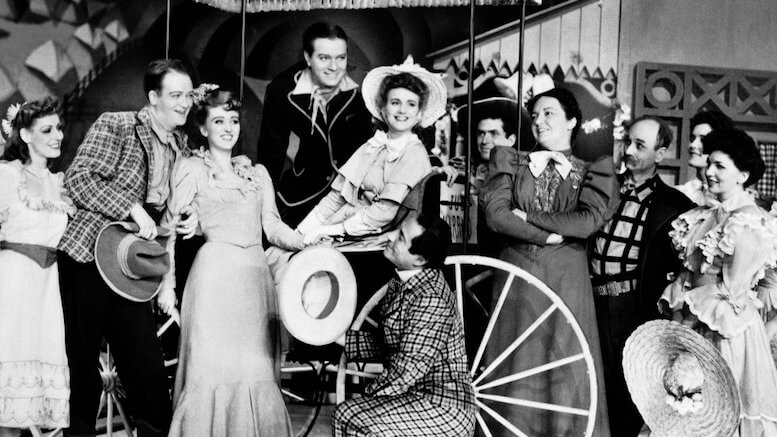Listen To The Lullaby
Today is Broadway Musicals Day. I didn't know that till a few days ago. It's not like it's widely celebrated. But then, every day is Broadway Musicals Day (except Monday when the theatres are dark).
In some ways, musicals are as big as ever. Broadway features huge, long-running hits like Hamilton, Wicked, The Book Of Mormon, The Lion King and quite a few others. Their national tours also sell out.
But in another way, the Broadway musical isn't what it used to be. At the beginning of the 1900s, there were musical shows, but the music in them didn't generally have a special American character--the sound was an imitation of Europe. Then came songwriters like Irving Berlin and Jerome Kern, not to mention the rise of jazz, and musicals had a modern sound that swept America.
Thus we get the age of the Great American Songbook in the 1920s and 1930, where composers like Richard Rodgers, George Gershwin, Cole Porter and many others did a lot of their best work. The songs they wrote for Broadway (and movies) were the hits of the day.
The next turning point was Rodgers' Oklahoma! in 1943. There had been precursors to the show, but now any self-respecting composer wanted to write songs that were part of a greater show, not just separable numbers they hoped would be hits. And the following 20 years or so was the golden age of the integrated musical, with titles such as Carousel, Kiss Me Kate, Guys And Dolls, The Pajama Game, My Fair Lady, The Music Man, Hello Dolly, and Cabaret, to name a few.
But there was trouble ahead. As rock music came to the fore, hit tunes from Broadway shows became less common. By the late 60s, Broadway essentially didn't create song hits (with exceptions like the rock musical Hair).
The Hit Parade had helped keep the Broadway musical alive--not everyone could see the shows, but they could hear the music. Now, a new generation didn't care. Musicals kept on, moving in many different directions. Smart, concept shows, as exemplified by Stephen Sondheim, and operatic spectacles, such as those from Andrew Lloyd Webber (whose work, of course, did not originate in America). There were also jukebox musicals, where the book is written around old hits. But all these types of shows could seem like museum pieces; sure, you could write a Broadway musical, but you could also write a minuet if you wanted. Broadway shows sold out, but young people, by and large, weren't listening.
And that's where we are today. Plenty of fascinating, fun shows, some that even capture the imagination of the public. And they certainly use modern idioms, such as rock and rap. But somehow, when Broadway isn't a hit tune factory, it's not that same thing.
But who cares. Celebrate Broadway Musical Day by listening to your favorite tunes from the Great White Way.




0 Comments:
Post a Comment
<< Home